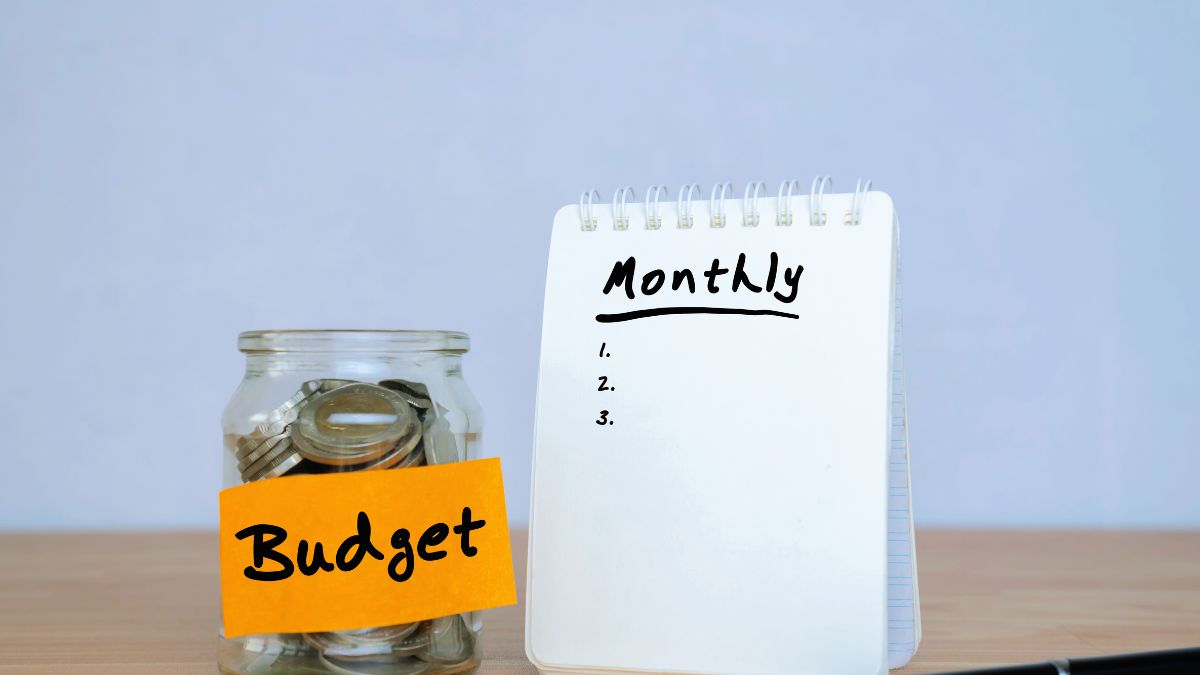Struggling with monthly bills? You can reduce your spending with a targeted approach. Start by monitoring your spending to identify unnecessary costs, then create a realistic budget that prioritizes your financial goals. Cooking at home, cutting out unused subscriptions and reducing transportation costs can save significant money.
Plan your grocery shopping wisely, minimize your entertainment expenses with free or low-cost alternatives, and automate your savings to stay consistent. Define short and long-term financial goals using the SMART framework to maintain focus and motivation. By taking these steps, you can optimize your spending, save more and achieve better financial control.
Using the tips in this article, you will be able to identify areas where you can cut back on spending and optimize your spending and ultimately get more control over your money. Here are the 9 Simple Tips to Reduce Monthly Expenses:
1. Track Your Spending

Before you can effectively reduce your spending, you need to know where your money is actually going. This is where careful monitoring comes into play.
Start by meticulously recording every single expense, no matter how small. Use a budgeting app, spreadsheet software like Excel or Google Sheets, or even a simple notebook to do this. Categorise your expenses (e.g., housing, transport, food, entertainment).
For a week or two, conscientiously track every penny you spend. You may be surprised at the hidden costs you uncover—the daily latte, impulse buys, or subscriptions you forgot about.
Once you’ve collected this data, analyse it. Look for patterns and identify areas where you regularly overspend. These insights will be invaluable when you start making conscious spending decisions.
When you know where your money is currently going, you can make informed decisions about how to allocate your resources more effectively.
2. Create a Budget

A budget is the roadmap for your financial success. It gives you a clear overview of your income and expenditure and allows you to make informed decisions about how you spend your money.
Start by listing all your sources of income, including your salary, any side income and other regular income streams. Next, categorise and track all your expenses. This includes fixed expenses such as rent or mortgage, utilities, and insurance, as well as variable expenses such as food, transport and entertainment.
Once you have a clear picture of your income and expenses, you can begin to allocate funds to each category. During this process, you will need to set realistic spending limits for each area of your budget. It is important that you are honest with yourself about your spending habits and that you prioritise your financial goals.
Review your budget regularly and adjust it if necessary. Life circumstances change and your spending needs will evolve. By reviewing your budget regularly, you can identify areas where you can make savings and reallocate funds towards your savings or debt repayment goals.
Creating a budget takes discipline and consistent effort, but the rewards are well worth it. A well-crafted budget can help you gain control of your finances, reduce stress and achieve your financial goals.
3. Cook at Home

Eating out can quickly put a strain on your budget. Meals at restaurants, even simple ones, and that doesn’t include drinks or tips. By cooking more meals at home, you can significantly reduce your spending on restaurant meals and save a considerable amount of money each month.
Start by planning your weekly meals in advance. This way you can create a shopping list and avoid impulse buys. Cooking at home doesn’t have to be time-consuming. Try quick and easy recipes using readily available ingredients. Consider cooking larger portions of meals and freezing leftovers for later meals.
Cooking at home also offers numerous health benefits. You have full control over the ingredients, so you can reduce processed foods, unhealthy fats and excess sodium. You can incorporate more fresh fruit, vegetables and lean protein into your diet.
4. Cut Unnecessary Subscriptions

Subscriptions have become an insidious drain on our budget. We sign up for free trials, forget to cancel them, and before we know it, we’re paying for a dozen services we barely use. It’s time for a subscription audit!
Start by reviewing all your recurring costs. Look at your bank and credit card statements for subscriptions you may have forgotten about. Identify services that you rarely or never use. Streaming platforms, gym memberships, online games, magazine subscriptions – these are all potential areas for savings.
Don’t be afraid to cancel subscriptions you don’t need. Most companies make it easy for you to cancel online. If you encounter any difficulties, contact customer service directly and explain your situation.
For services you use, consider downgrading to a cheaper tier. For example, if you mainly stream on one device, you may be able to save money by switching to a standalone plan.
Regularly review your subscriptions to make sure you’re only paying for the services that really add value to you. This simple step can save you a considerable amount of money each month.
5. Reduce Transportation Costs

Transportation can be a significant monthly expense, but there are several ways to cut costs without sacrificing convenience. If you commute to work, consider using public transportation instead of driving. Public transportation is often much cheaper than fuel, parking fees and vehicle maintenance.
Traveling shorter distances by bike or on foot will not only save you money, but also promote a healthier lifestyle. If driving is unavoidable, you can significantly reduce fuel costs by carpooling with colleagues or friends. In addition, regular maintenance of your vehicle will keep it running efficiently and avoid expensive repairs.
Simple measures such as checking your tire pressure, driving in a fuel-efficient manner and avoiding unnecessary journeys can further reduce the strain on your transport budget. Exploring these alternatives can lead to significant savings over time.
6. Lower Grocery Bills

Food is a significant monthly expense. With a few smart strategies, you can significantly reduce your grocery budget without sacrificing the pleasure of delicious meals.
First, create a meal plan before you go to the store. This will help you avoid impulse buys and ensure you only buy what you need. Consider planning more plant-based meals, as these tend to be more budget-friendly than meat.
Secondly, shop smart. Compare prices from different stores and brands. Buy frequently used, non-perishable items in bulk if it makes financial sense. Take advantage of special offers and coupons and consider participating in customer loyalty programs.
Third, reduce food waste. Plan your meals based on what’s already in your fridge to minimize spoilage. Get creative with leftovers – turn them into new dishes or freeze them for later.
Finally, grow your own herbs. Even a small herb garden can save you money on fresh fruit and vegetables and add a flavorful touch to your meals.
7. Minimize Entertainment Costs

Entertainment is an important part of life, but it can also put a significant strain on your budget. Fortunately, there are many ways to have fun without breaking the bank.
- Explore free activities: Take advantage of the many free entertainment options in your community. Visit local parks for picnics and outdoor activities, explore free museum days, attend free concerts or festivals, and take advantage of your local library’s events and resources.
- Have a date night at home: Ditch the expensive outings and opt for cozy evenings at home. Enjoy board games, movie nights with popcorn, home-cooked meals or just spending quality time together.
- Limit streaming services: Check your current streaming subscriptions. Are you really using them all? Consider downgrading your subscriptions, canceling services you rarely use or exploring free alternatives like library apps or YouTube.
- Get out in nature: Hiking, biking and exploring nature trails are not only free, but also good for your physical and mental health.
By exploring these alternatives, you can still enjoy your free time while significantly reducing your entertainment expenses. Remember, it’s not about giving up fun, but finding more affordable ways to experience it.
Read More:
- 9 Proven Ways to Pay Off Debt Faster and Stress Less About Money
- 10 Simple Businesses You Can Start Today (No Experience Needed!)
8. Automate Savings

Automating your savings is one of the most effective ways to ensure that you are consistently pursuing your financial goals. When you set up automatic transfers, you won’t be tempted to spend money you intended to save.
- Schedule regular transfers: Set up automatic transfers from your checking account to your savings account each month. Even small, regular contributions can make a big difference over time.
- Take advantage of employer-sponsored retirement plans: If your employer offers a 401(k) or similar retirement plan, take full advantage of it. Make as many contributions as you can, especially if your employer offers additional contributions (free money!).
- Consider rounding up apps: Explore mobile apps that automatically round up your purchases to the nearest dollar and invest the remaining money. With these apps, you can save effortlessly without even realizing the impact on your daily spending.
By automating your savings, you’re essentially “paying yourself first” This proactive approach ensures that your savings goals remain a priority even when unexpected financial challenges arise.
9. Set Financial Goals

Before you can effectively reduce your monthly expenses, you must define your financial goals. What do you want to save for? Is it a down payment on a house, a dream vacation, paying off debt, or building up an emergency fund? Clearly defining your goals will give you direction and motivation.
Think about both short-term and long-term goals. Short-term goals could be paying off a credit card, saving for a new household appliance or building up an emergency fund. Long-term goals could include saving for retirement, funding your children’s education or achieving financial independence.
By setting specific, measurable, achievable, relevant, and time-bound (SMART) goals, you create a roadmap for your financial journey. This clarity will help you prioritize your spending and make conscious decisions that align with your financial goals.

